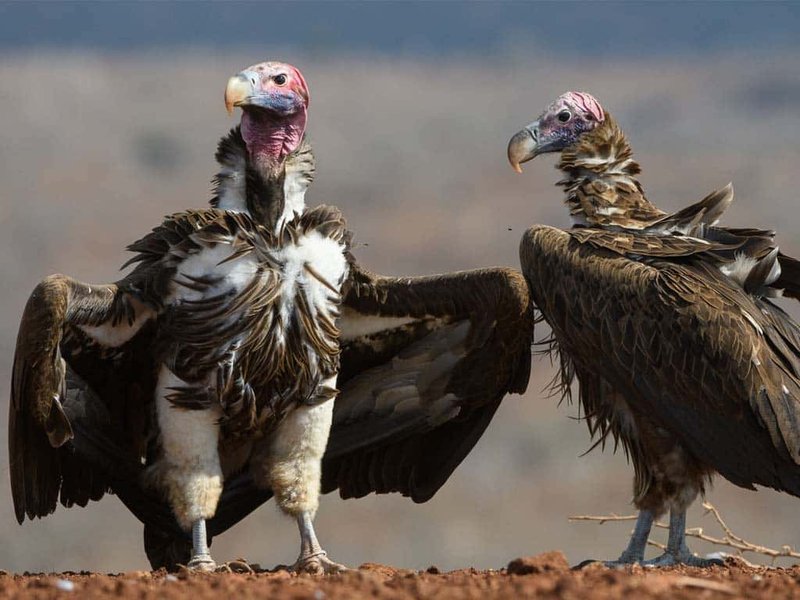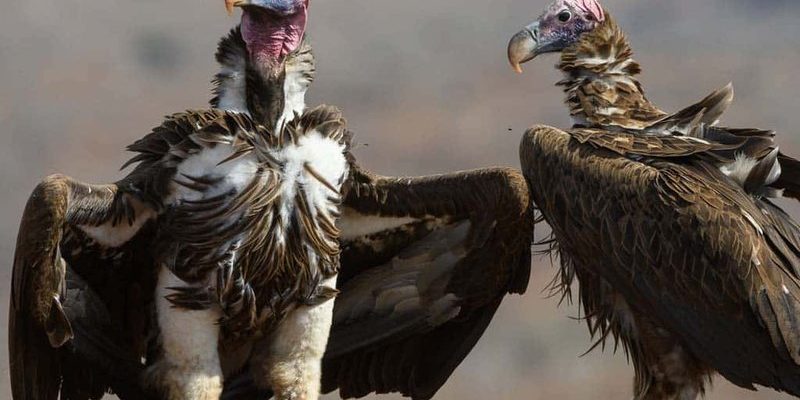
Let’s imagine for a moment that vultures are the cleanup crew of nature. They play an essential role in our ecosystem, disposing of animal carcasses and helping prevent the spread of disease. But lurking beneath their seemingly harmless exterior is a fascinating and sometimes misunderstood creature. So, let’s take a closer look at whether vultures can be dangerous to us humans, breaking down the myths and realities behind these intriguing birds.
Understanding What Vultures Are
Vultures are large birds of prey, known for their distinctive appearance, often characterized by bald heads and broad wings. There are two main types: **New World vultures** (like the Turkey Vulture) and **Old World vultures** (like the Griffon Vulture). These birds are primarily scavengers, meaning they feed on dead animals rather than hunting live prey. This scavenging habit is crucial for the environment as it helps eliminate carcasses that could otherwise spread disease.
You might wonder why vultures have bald heads. Here’s the thing: their featherless heads help them stay clean while feeding. When they dive into a carcass, their heads are less likely to get soiled with bacteria, which is a big advantage in their line of work. So, instead of being grossed out, we should appreciate how nature has designed them for this important role.
Are Vultures Aggressive Toward Humans?
Most people are surprised to learn that vultures are generally not aggressive. In fact, they are quite shy creatures. If you encounter a vulture in the wild, it will likely fly away rather than confront you. They prefer to keep their distance from humans, which is a smart survival tactic given their size and vulnerability.
That said, there are exceptions. In some areas where vultures are fed by humans, or if they feel threatened while protecting their nests, they can show some aggression. It’s rare, but if a vulture believes its young are in danger, it might swoop down to defend them. However, these instances are not common, and most interactions between vultures and humans involve the birds simply soaring high above, minding their own business.
Can Vultures Carry Diseases?
While vultures themselves aren’t inherently dangerous, they can carry diseases due to their scavenging lifestyle. They often eat animals that have died from various illnesses, which can lead to pathogens sometimes sticking to their feathers or beaks. **However**, vultures possess incredibly strong stomachs that can tolerate bacteria that would be harmful to humans, making them more resilient than many other animals.
That said, if a vulture ever comes into contact with a human or domestic animal, there is a small chance of transmission of diseases like **avian influenza** or **West Nile virus**. However, the risk is minimal if proper hygiene is practiced around these birds. Avoid touching them, especially if they appear sick or injured, and wash your hands thoroughly if you do come into contact.
Vultures and Human Safety
So, how do we ensure our safety around vultures? Here are a few straightforward tips:
- Keep your distance: Always observe vultures from afar. They are wild animals and should be treated with respect.
- Avoid feeding them: This can lead to aggressive behavior and dependency on humans for food.
- Don’t interfere with nests: If you spot a vulture nest, steer clear and let them raise their young without disturbance.
By following these guidelines, you can appreciate vultures for the important role they play in nature without putting yourself at risk. They’re not out to get you; they’re just doing their job.
Vultures and Their Role in Ecosystems
Vultures play a vital role in maintaining the health of ecosystems. By consuming dead animals, they help prevent the spread of diseases that can occur from decaying carcasses. Think of them as nature’s clean-up crew, ensuring that the environment stays balanced and healthy.
In areas where vulture populations decline, researchers often see a rise in carcass-related diseases. For example, when vultures are removed from an ecosystem, other scavengers, like rats or feral dogs, may take over their role. These animals can carry diseases that are harmful not just to wildlife but also to humans.
So, the next time you see a vulture soaring overhead, consider the important job it’s doing. They might seem a bit eerie, but without them, our world would be a much filthier place!
Why The Myth That Vultures Are Dangerous?
The belief that vultures can be dangerous often stems from their eerie appearance and association with death. Movies and media portray them as ominous figures, circling the scene of a tragedy. This portrayal creates a narrative that they are to be feared, which isn’t the reality.
In addition, some cultures have myths surrounding vultures, linking them to bad luck or death. These stories can shape our perceptions, leading to unnecessary fear. But let’s break it down: vultures don’t seek out human interaction and certainly don’t prey on humans.
Instead, they’re merely surviving, utilizing what’s available in their environment. Understanding this truth encourages us to look beyond the myths and appreciate these unique birds for their ecological contributions.
In summary, vultures are generally **not dangerous** to humans. They’re more likely to fly away than to confront anyone, and while they can carry diseases, the risk of transmission is low if we keep our distance and respect them as wild animals. Their role in our ecosystems is invaluable, helping to keep our environment clean and healthy.
So next time you see a vulture, remember that it’s not there to threaten you but rather to perform its critical role in the circle of life. Let’s celebrate these remarkable birds for what they are: nature’s scavengers. They deserve our respect, if not our friendship!

